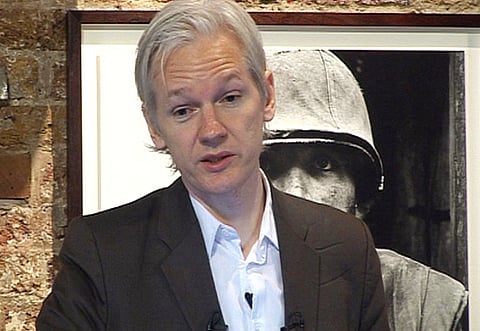WikiLeaks founder mulls asylum in Switzerland
Julian Assange says he and his group have come under increasing pressure after Iraq torture leaks

Geneva: The founder of WikiLeaks, the whistle-blowers' website, said on Friday he may apply for asylum in Switzerland, claiming he and his group have come under increasing pressure since releasing hundreds of thousands of secret US military documents.
Julian Assange told reporters he was "still looking into the process" of requesting asylum, but was considering the Alpine country because "the Swiss have a history of fierce independence."
In October, Sweden denied Assange's application for a residence permit. The 39-year-old Australian had sought to establish a base for WikiLeaks in Sweden to take advantage of its laws protecting whistle-blowers.
Prosecutors in the Scandinavian country are still investigating rape and sexual molestation allegations against Assange by two Swedish women. Assange has denied the allegations.
Assange was speaking Friday at the United Nations in Geneva after a meeting organized by the Iranian Elite Research Center, a U.N.-accredited group based in Tehran.
He has urged U.S. authorities to probe possible rights abuses by American troops in Afghanistan and Iraq following the publication by his group of almost 500,000 secret U.S. documents about the wars there.
U.S. State Department legal adviser Harold Koh dismissed the call Friday, saying information in the leaked files was already known to U.S. authorities and hundreds of investigations into suspected abuses in Afghanistan and Iraq had taken place.
Assange, a veteran computer hacker, established WikiLeaks in 2006 and it has obtained secret documents, stored them outside the reach of governments, then released them globally.
That has included 391,832 secret documents on the Iraqi war and some 77,000 classified Pentagon documents on the Afghan conflict.
Assange has since been denounced by governments, and some of his own colleagues, for releasing Afghan documents that contained the names of Afghan intelligence sources for Nato forces, thereby theoretically placing the sources' lives at risk.
US officials have said they are weighing Assange's actions under the 1917 Espionage Act and demanded that he return all government documents that he has and publish no new ones.



